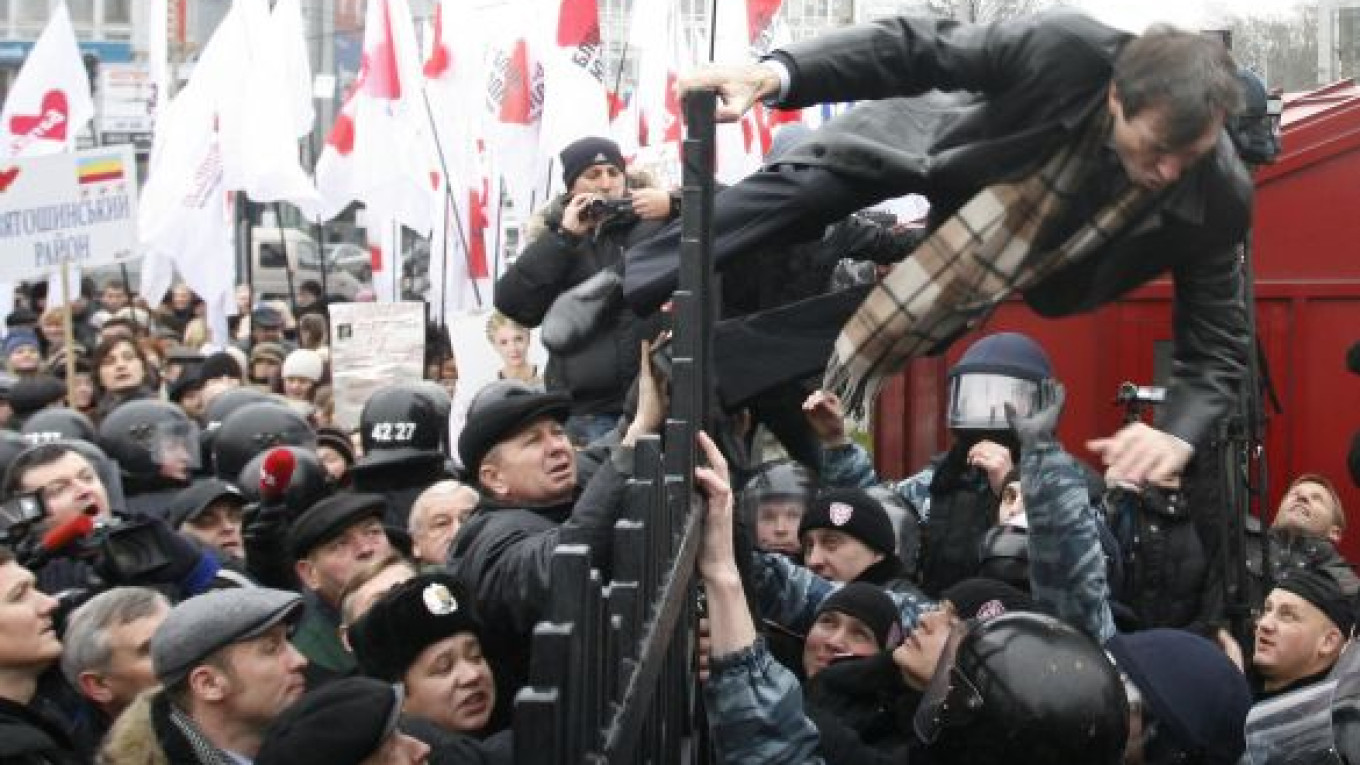KIEV — A Ukrainian court on Wednesday threw out a charge against former President Leonid Kuchma alleging involvement in the 2000 murder of opposition journalist Heorhiy Gongadze, ruling that secret tape recordings that appeared to incriminate him were not acceptable evidence.
The Prosecutor General's Office opened the criminal case against Kuchma, president from 1994 to 2005, last March.
The murder of Gongadze, who was well known on television talk shows, became emblematic of the sleaze and violence of Ukraine under Kuchma and led to rallies in Kiev.
But on Wednesday a Kiev court ruled as unlawful the prosecutor's case, which had alleged abuse of office, leading to the death of the journalist, Ukrainian news agencies said.
Kuchma, 73, had denied any role in the grisly murder of the 31-year-old editor, whose headless body was found in woods a month and a half after he was abducted in 2000.
Kuchma was once a patron of President Viktor Yanukovych, and his case has run in parallel to the prosecution of opposition leader Yulia Tymoshenko, who last October was sentenced to seven years in jail for abuse of office.
A political foe of Yanukovych, Tymkoshenko last March contemptuously dismissed the move against Kuchma as "window-dressing" intended to project the impression that Yanukovych was abiding by the rule of law to justify a vendetta against her.
She predicted that the case would be dropped against him.
News that Kuchma has been cleared came as Tymoshenko's defense counsel formally began an appeal against her seven-year sentence.
Much of the case against Kuchma had been based on alleged secret tape recordings by his former bodyguard, Mykola Melnychenko, which were said to have been made between 1998 and 2000. One of them appeared to indicate that Kuchma had told officials to "deal with" Gongadze.
In its ruling on Wednesday the Kiev court said the tapes had been acquired by illegal means and therefore could not constitute acceptable evidence.
A Message from The Moscow Times:
Dear readers,
We are facing unprecedented challenges. Russia's Prosecutor General's Office has designated The Moscow Times as an "undesirable" organization, criminalizing our work and putting our staff at risk of prosecution. This follows our earlier unjust labeling as a "foreign agent."
These actions are direct attempts to silence independent journalism in Russia. The authorities claim our work "discredits the decisions of the Russian leadership." We see things differently: we strive to provide accurate, unbiased reporting on Russia.
We, the journalists of The Moscow Times, refuse to be silenced. But to continue our work, we need your help.
Your support, no matter how small, makes a world of difference. If you can, please support us monthly starting from just $2. It's quick to set up, and every contribution makes a significant impact.
By supporting The Moscow Times, you're defending open, independent journalism in the face of repression. Thank you for standing with us.
Remind me later.


